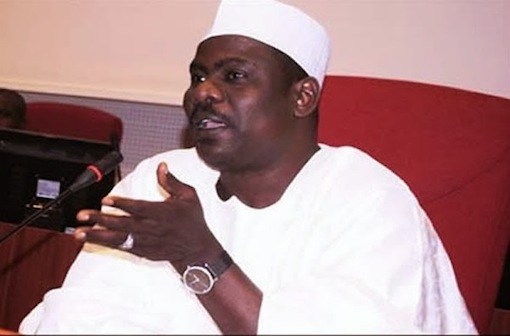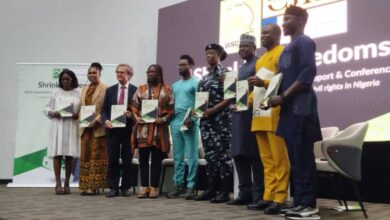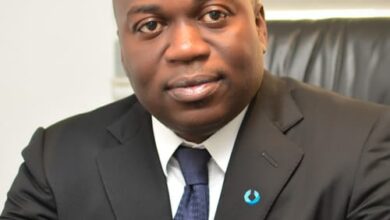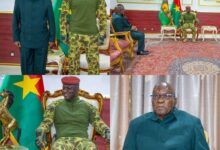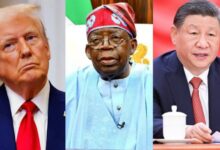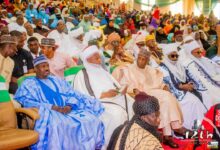Kwankwaso lists Tinubu govt’s inadequacies but insists ‘ballot power, not protest way to go’
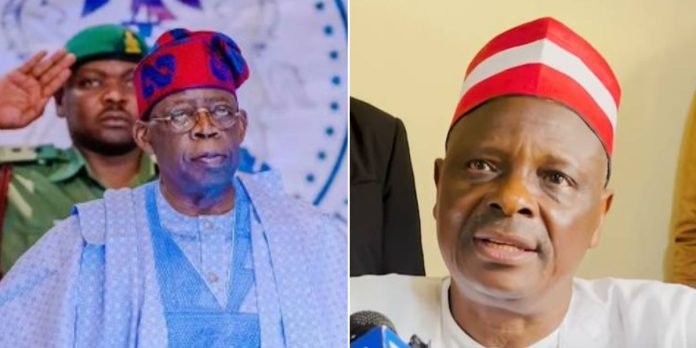
By KEMI KASUMU
National Leader of the New Nigeria People’s Party (NNPP), Senator Rabiu Musa Kwankwaso, has come out to speak on current issues mainly the complaints about hunger and hardship in the country, as he accuses President Bola Tinubu of “committing six political and economic crimes” as he asked Nigerians to channel their energy to ballot not protests.
Kwankwaso, who is former governor of Kano State, spoke regarding the planned #EndBadGovernment and expressed concern about Nigeria’s current state, attributing the country’s problems to poor leadership since 2007.
He believed that good governance, respect for the rule of law, transparency, and accountability can correct the country’s course and lead to economic development and prosperity.
He noted that poor governance has led to widespread anger, hunger, insecurity, and hopelessness among citizens, particularly the youth.
The 2023 presidential candidate listed several examples of avoidable crises in Tinubu’s government, including political interference, sabotage, and insecurity, and appealed to leaders to address these challenges.
According to Kwankwaso, six avoidable cases that happened under Tinubu’s presidency are; “Interferences by the Federal Government into the affairs of the chieftaincy matters in Kano State, impeachment of the Deputy Governor of Edo State, political crises in Rivers State, sabotage of Aliko Dangote refinery, controversies surrounding SAMOA agreement, the conflict between Sen. Ali Ndume and the APC Leadership, widespread insecurity and other criminal acts are a few examples of avoidable and unnecessary crises.”
In a statement he personally signed on Friday 26th July, 2024 amidst widespread discontent and calls for demonstrations, Senator Rabiu Musa Kwankwaso emphasized that effective and lasting change can be achieved through the power of the ballot.
“It is with a deep sense of responsibility that I share my thoughts on the current situation in Nigeria. We find ourselves in avoidable hardship because our leaders missed some steps since 2007,” Kwankwaso stated.
“However, there is always room for correction and setting the country on the right track for economic development, prosperity, and better welfare of citizens.”
Kwankwaso highlighted several crises stemming from poor governance, such as federal interference in Kano State’s chieftaincy matters, the impeachment of the Deputy Governor of Edo State, political turmoil in Rivers State, and widespread insecurity.
“Interferences by the Federal Government into the affairs of the chieftaincy matters in Kano State, impeachment of the Deputy Governor of Edo State, political crisis in rivers State, sabotage to AIiko Dangote refinery. Controversies surrounding SAMOA
agreement, the conflict between Sen. Ali Ndume and the APC Leadership, widespread insecurity and other criminal acts are a few examples of avoidable and unnecessary crises,” he said.
He argued that these issues are symptomatic of a lack of accountability and transparency.
“It is sad to note that the attitude of our leaders to poor governance has plunged the citizens, especially youth, into hunger, insecurity, hopelessness, and a sense of giving up on the country,” Kwankwaso remarked.
He called on Nigerian leaders at all levels to urgently address these challenges by ensuring good governance and adherence to the rule of law.
Acknowledging the recent calls for protests, Kwankwaso recognized the collective frustration and yearning for a better Nigeria but cautioned against the potential consequences of such actions.
He urged Nigerians to consider the power of their vote as the most effective tool for change.
“In these trying times, our nation stands at a crossroads. Our collective frustration with bad governance has reached a boiling point, and the urge to protest is strong. As an elder and patriotic Nigerian, I share your concerns and your desire for change.
“However, I urge you to consider the consequences of national protests and to channel your energy into a more effective and peaceful means of transformation through the power of your ballot,” Kwankwaso advised.
Kwankwaso warned that protests, while a fundamental democratic right, often escalate into violence, leading to loss of lives, destruction of property, and widespread chaos.
“The repercussions of such actions extend far beyond the immediate moment, leaving scars on our communities and deepening divisions among us,” he added.
“I speak to you not just as an elder and a concerned citizen but as someone who deeply believes in the power and potential of our great nation.
“Let us put our country first and work together to build the Nigeria we all aspire to see,” he concluded.
Kwankwaso’s message comes at a critical time when Nigerians are increasingly disillusioned with the state of governance and are seeking ways to hold their leaders accountable.
His call for using the ballot as a means to bring about change underscores the importance of democratic processes and the role of citizens in shaping the future of the nation.
Sen. Engr. Dr. Rabi’u Musa Kwankwaso was a former Governor of Kano State, former Minister of Defence, former Special Emboy to Darfur and Somalia, former Senator representing Kano Central and the NNPP National Leader and Presidential candidate 2023.


